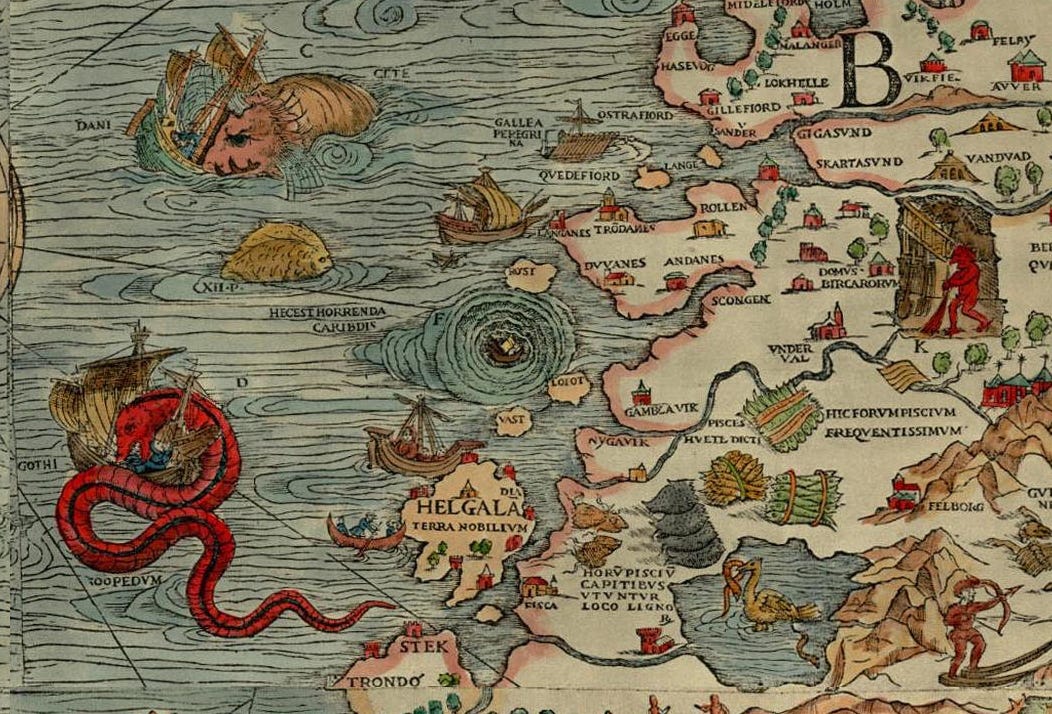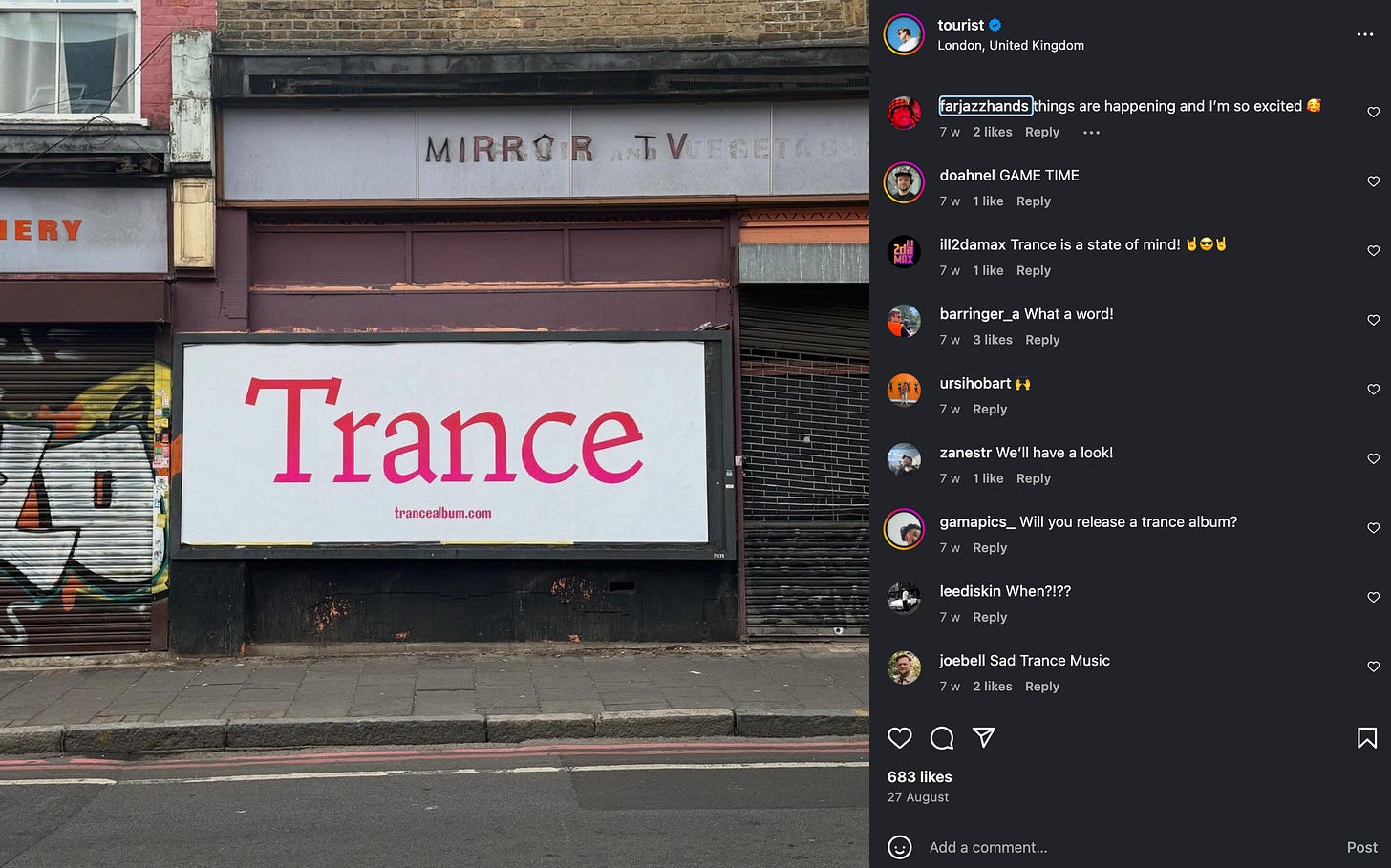Sunday Edition #20 - Play in Storytelling
Also: History of the Braai, The Lobster, and Naming Conventions
Welcome to the Sunday Edition where I share interesting articles and links alongside what I’ve been up to!
Cixin Liu and Paracosmal Worlds
I’ve really enjoyed Synthesized Sunsets’ multi-part series on Chinese Sci-Fi. The last one covers Cixin Liu specifically. Do read all of it! :)
In the past I’ve tried explaining to others how much I enjoy Liu’s sci-fi because of how inventive and playfully grand it is. People *do* unthinkable stuff in his worlds. Kevin sees this as paracosmal, which is:
I would describe these stories as “paracosmal” after the word paracosm: a complete world-system dreamt up in the mind of a child. Paracosms are distinct from works of adult worldbuilding in that they are typically held together by a parallel system of logic and rules, which is not always legible to an outsider.
Legibility is second to playfulness of the world.
Many of Liu’s chains of events would not be acceptable to someone who doesn’t know very much about science, but they suddenly become compelling to people who are familiar with the general shape of certain technical arguments. Technical readers are forced to admit that his reasoning is compelling, even though the conclusions are pretty absurd. Any ‘plot holes’ are not bugs, but interesting features used to explore the nature of the universe.
This is exactly what Death’s End felt like, hurtling forward like a rollercoaster.
I can only describe the second half of Death’s End as breathless. It really does feel like an excited child just going and going; readers will struggle to keep up with Liu as he forcibly drags you from the walls of Constantinople to fictional storybook kingdoms, and then onto eon-spanning planetary odysseys.
He ends the wonderful essay with:
Ultimately, Liu’s fiction can inspire us to more deliberately try to free ourselves from the public gaze of convention. At a time when many aspects of craft have been boiled down to a science, it is natural to feel hemmed in by the typical prescriptive narrative constraints. But in the end, the emotions that draw people to sci-fi in the first place tend to be more paracosmal than enlightened. Sometimes the best thing you can do is try out something narratively “unsound”, just to see what unfolds.
I think it’s a huge art as a writer to simultaneously make the world feel playful and coherent. Imaginative play as a kid centers on infinite storytelling. The story is there to continue the play and that’s why it can sometimes feel all over the place as boundaries and rules and elements of play are constantly renegotiated. As adult writers, especially in sci-fi, we can be stuck in justifying the world’s unique rules at cost of the story. Getting it right in the way Cixin Liu does is *really* hard however, because as Kevin notes, he is quite clever at creating sufficient and smart rules for his playful narratives to work in.
I think it’s ultimately that as writers, we have to train ourselves to suspend belief long enough that we eventually find ourselves in new territory and then work back from that. When kids break down their own narratives in play to move onto the next thing, it’s simply because they are kids. But as adults, we can hold more in our head for longer. We’ve just taught ourselves to stay in the lanes because usually, we’ve learned that when we veer off a path, there’s nothing there. You stay hemmed in, prematurely. Keep going even if it doesn’t make sense yet. I feel like this is in general a good life metaphor. 😅
Birth of the Braai
Johann Fourie has an interesting article on the history of the “braai” in South Africa (South African Heritage Day was on the 24th of Sept).
According to Funde, the braai came to cultural prominence in the 1930s primarily as a fundraising activity. Over the course of that decade, braaiing became more explicitly tied to Afrikaans culture and tradition with the rise of Afrikaner Nationalism, and particularly in connection with the centenary celebrations of the Great Trek. In the run-up to and during the centenary, hundreds of braaivleisaands were held across the country. One event, conducted on the grounds of the Helpmekaar School in Johannesburg, saw a staggering ‘2,000 pounds of sausages, 4,000 pancakes, thousands of mosbolletjies, hundreds of chickens, large quantities of fruit salad and cool drinks, coffee and tea’ served to the 5,000-strong crowd.
I’ve tried explaining to Americans how a braai differs to a regular BBQ. While a braai does focus on variations of deep interest in cooking over a fire, a braai is first and foremost a social tradition versus it being more so about wanting fire-grilled cuisine specifically. After the fire is lit, people hang around and socialize (sometimes throwing on more wood if the vibe is good) until the food is eventually grilled and served. Afterwards, the fire might even be relit continue the social environment.
Lighting the fire is like lighting a beacon, a call for friends and family to put other things aside (their book, their phone, their game) and join around the fire over a snack and a beverage. While a BBQ is usually more focused only on the cuisine, South Africans usually try to invent reasons to create a braai-like atmosphere. For example, during the summer holidays where we braai every night, we might light a fire simply to reheat leftovers. It’s all centered on creating a social space and the fire and the cooking is ultimately an excuse for it (without, again, ignoring the fun and creativity of fire grilled cuisine). We cook a lot more things on the fire simply because we want to center our social life around it. It’s *the* biggest thing I miss the most about living in the USA: to not smell, at *minimum*, a weekly wood fire, and to enjoy time with family and friends around it.
NoAI LoFi
I was turned onto this via Jay. It’s people recreating the “LoFi Background Beats” genre, but actually doing it as IRL and filmed. It’s both a reaction to AI, but I also think pre-AI, it’s a reaction to the algorithm in general.
I think it’s a trend that will continue. In Jan 2024, I claimed that with generative AI, the human medium becomes the human message. It follows the rise of slow form media (like conversational podcasts and influencers like Sam Sulek that make it feel like you’re hanging with a gym friend).
Another term I think is also apt, is: presence media. It’s about recreating the feeling of there actually being a human near you. The pace is deliberately at human pace, no fast cuts or fancy editing. I think we might feel this kind of content is sad (just, you know, actually spend time with other humans), but on the spectrum of slop scrolling versus hanging out friends, jamming by a lake, I think this middle ground of media is actually better than most of the slop around.
What I’m Up To
✍️ Writing - Revising Novel #2
Feel like I cracked the toughest parts of this revision and the rest should be coasting to completion (I say, optimistically as usual). Still hoping to finish it before the end of the month. I’ve also been debating a title change. I always toss and turn on naming conventions. In a wildly saturated market in *everything* these days, it feels naming is ever more important, especially if there’s not much to back up the book or author. Too clever naming obscures the point of the book, but too on the nose and it can feel flat. But, when I think about one of my most successful projects, it likely succeeded in part because the name of the artwork is what it is about. This Artwork Is Always On Sale.
There’s an interesting strategy that one of my favourite musicians is doing for his new album. Usually making epic electronic music, he started promoting a new genre focused album (focused on his take on classic trance). In promotions, it’s simply called “the trance album”.
But the actual album is called “Music Is Invisible”. I like this approach. While Tourist is calling it something else in promotional material, you *can* just actually call something, something else too. Go all post-rock on literary naming conventions. It’s just one long name of: <clever title> or the story about <actual plot point>.
The thing is… If I was planning to self-publish this novel, I’d be willing to get more creative, but I have to sell to agents who have to sell to publishers who have to sell stores who have to sell to prospective readers. And those chain of connections, usually, don’t like it if you get clever. 🙃
But hey. Maybe in the next batch of querying after I finish this revision, I’ll get clever and if I’m still rejected, I’l revert to something less clever for the title. 😂
All of this “writing to the publishing industry” reminds me of the great satire of American Fiction.
🕹 Gaming - Hades 2
📺 Watching - The Lobster, The Lunchbox
The Lobster
Watched The Lobster after a recommendation from a friend. What a fascinating film. Peak Yorgos Lanthimos. The premise is that when people are single, they have to find a new partner at a hotel retreat in 45 days or be turned into an animal. I loved it. For you if you enjoy: awkward, dark, and hilarious comedy intermixed with meta commentary on courting and coupling in modern life. I feel like it’s a more relevant film in 2025 than 2015.
The Lunchbox
What an endearing film. After a lunchbox delivery mixup (the dabbawala system) in Mumbai, a sweet love story unfolds through letters between an elderly widowed man and a younger married woman. The pace and acting is really good. Would classify it as a great “sonder” film, seeing lives so deeply lived in a tiny pocket somewhere in the world. That’s all our lives. We’re all just pockets of deep life, mostly invisible to a select few. In fact, a key character is never seen in the film, only heard. This is for you if enjoy: unconventional love stories with an endearing center to it.
🎶 Listening - Syd Taylor - Heaven
What a fantastic voice and mood. Enjoy!
That’s all for this week, friends. Hope you get to enjoy a lovely sunset.
Simon




Gm Simon, I've messaged you on farcaster! Would love to chat a bit if you have some time. 🙂